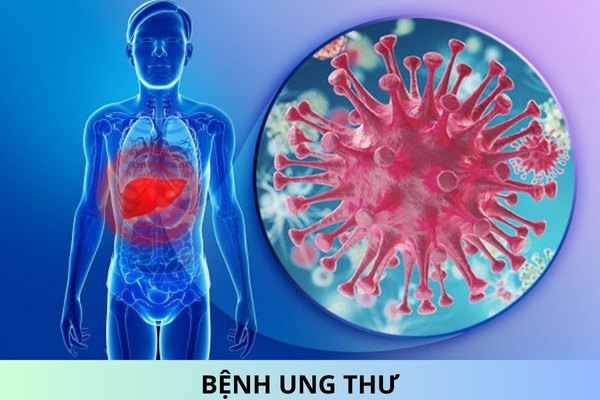Organizing the Effective Implementation of Nutrition Interventions: What Are the Regulations?
Implementation of Nutritional Interventions
How is the effective implementation of nutritional interventions regulated?- The effective implementation of nutritional interventions is regulated to ensure that they align with national health policies and guidelines aimed at improving public health. Specific regulatory measures include detailed protocols for the provision of nutritional support, monitoring and evaluation criteria, and the roles and responsibilities of involved parties.Implementation of Scientific Research on Nutrition and Food
How is the implementation of scientific research on nutrition and food regulated?- The implementation of scientific research on nutrition and food is regulated through established frameworks and guidelines that promote rigorous, ethical, and high-quality research standards. Regulations include obtaining necessary approvals from relevant authorities, adhering to ethical standards, and ensuring the transparency and reproducibility of research findings.Thank you for your assistance.Effective Deployment of Nutritional Interventions: Regulations
As specified in Subsection 5, Section III of the Action Plan for the Implementation of the National Nutrition Strategy to 2025, issued with Decision 1294/QD-BYT in 2022 on the effective deployment of nutritional interventions, the regulations are as follows:
- Effective Deployment of Nutritional Interventions
- Develop, standardize, and disseminate technical guidelines and processes for essential nutritional interventions.
- Include regulations and implement the quality assessment of interventions into the annual evaluation criteria for healthcare facilities.
- Implement essential nutritional interventions in the community:
+ Screen and assess the nutritional status of children from 0 to 18 years old.
+ Provide nutritional counseling for various groups: nutrition for pregnant and breastfeeding mothers, breastfeeding and appropriate supplementary feeding, nutrition to prevent overweight and obesity, nutrition to prevent non-communicable diseases.
+ Manage and treat severe acute malnutrition in children under 6 years old.
+ Prevent micronutrient deficiencies in children and women of reproductive age according to Ministry of Health protocols (Vitamin A, iron, zinc, and multivitamins).
+ Manage non-communicable diseases related to nutrition and nutrition for the elderly in the community and hospitals.
- Organize direct communication interventions in the community and healthcare facilities: provide nutritional practice guidance, small group communications, nutrition clubs, and other forms.
- Deploy and transfer model nutrition departments to hospitals and lower-level healthcare facilities.
- Implement school meal programs and nutrition education in schools, combining family and school to ensure reasonable nutrition and physical activity.
- Develop and implement regulations on a healthy nutritional environment in schools, including restricting the marketing of unhealthy food and beverages in schools.
- Coordinate adjustments and additions to nutritional content in textbooks across all educational levels to align with the latest recommendations.
- Develop and implement models to improve the nutritional status and communal meals for workers, and breastfeeding practice rooms at workplaces.
- Develop and implement annual emergency response plans, preparing essential personnel and supplies.
- Organize emergency nutritional intervention activities during natural disasters and pandemics, including: child feeding, child care, treatment for acute malnutrition, preventing micronutrient deficiencies, food safety and environmental sanitation, risk communication, and food support.
- Guide the public to develop VAC (Garden, Pond, Barn) models, develop high-nutritional-value plant protein sources (sesame, peanuts, beans) suitable for households.
- Guide the processing to create nutritious dishes suitable for different groups.
- Build pilot models to enhance micronutrients in rice.
- Maintain, upgrade, and modernize infrastructure and new techniques for the iodine testing system in provincial units.
Implementation of Nutritional and Food Research: Regulations
As specified in Subsection 6, Section III of the Action Plan for the Implementation of the National Nutrition Strategy to 2025, issued with Decision 1294/QD-BYT in 2022 on organizing effective deployment of nutritional interventions, the regulations are as follows:
- Implementation of Nutritional and Food Research
- Update and upgrade research techniques on food; research on nutrient absorption and metabolism.
- Research and evaluate changes in the nutritional status of children, students, and intervention solutions. Research models and apply stunting prevention models for children, optimal nutrition for the first 1000 days by region. Research current status and interventions to improve micronutrient deficiencies; research and implement micronutrient deficiency prevention models for at-risk groups. Enhance testing capacity related to nutrition and food, preventing micronutrient deficiencies. Apply new techniques in nutritional research and micronutrient deficiency prevention.
- Research solutions to prevent micronutrient deficiencies: research on micronutrients; research production and clinical trials of products to prevent micronutrient deficiencies for different groups; research to enhance micronutrients in livestock and crops.
- Research solutions to prevent overweight, obesity, metabolic disorders, and non-communicable disease risk factors related to nutrition in different groups. Research genetic factors, food, and nutrition. Research and apply organic food and bioactive-rich foods to support chronic non-communicable disease prevention. Research intervention solutions on eating policies, physical activity, and bioactive-rich products to help control non-communicable disease risk factors.
- Develop tools to support nutritional counseling and non-communicable disease treatment, applying achievements of industry 4.0 technology.
- Research solutions to improve the nutritional status of patients and the elderly (priority on malnutrition, diabetes, hypertension, overweight-obesity): research and produce, conduct clinical trials of nutritional products for different groups; deep research on therapeutic and preventive nutrition for patients and the elderly.
- Develop tools to support nutritional counseling and treatment for patients and the elderly (priority on malnourished, diabetic, hypertensive, overweight, and obese groups).
- Research on food safety and nutrition, exposure to mycotoxins, gut microbiota concerning children's nutritional status; antibiotic resistance in food.
Kind regards!










